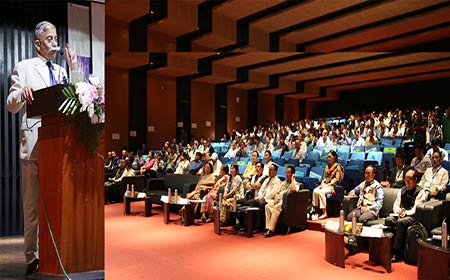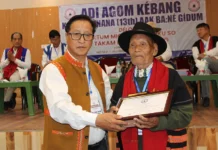RTI is based on transparency, accountability: Gov
ITANAGAR, Oct 19: “Transparency and accountability build up to RTI,” Governor BD Mishra said.
The governor was addressing the ‘State Convention on Right to Information (RTI) Act, 2005-cum-the 13th foundation day celebration of the Arunachal Pradesh Information Commission (APIC)’ at the Dorjee Khandu auditorium of the legislative assembly here on Saturday.
“There are seven pillars of good governance,” he said: “transparency, accountability, honesty, continuity, audit, review, and midcourse correction.”
Mishra said the RTI Act aims to combat corruption, protect fundamental rights, prevent human rights violations, provide exigency in getting justice, eliminate administrative procrastination, and prevent distortion of procedures and provisions.
“The RTI Act encourages the governments to ensure administrative honesty through effective RTI compliance and voluntary disclosures,” he said.
Brushing aside apprehensions that the act would hamper frank file-noting and bold administrative recommendations, besides abetting a “play-safe administrative approach,” the governor said there is nothing to fear if the government officials maintain transparency, accountability and honesty.
“The more we hide, the more vulnerable we become; the more we reveal, the more working burden we shed,” he said.
Mishra advised the APIC to help iron out vague answers, “couching and part replies, sub-quality information, and shifting of responsibility on RTI applications.”
Congratulating the commission on its 13th foundation day, the governor expressed confidence that it would continue to render its service in the most sincere and dedicated manner.
Chief Information Commissioner (CIC) Joram Begi and State Information Commissioner (SIC) Goto Ete spoke on the implementation of the RTI Act in the state.
Among others, Assam CIC Himangshu Sekhar Das, Arunachal SIC Leki Phuntso, former CICs Nyodek Yonggam and YD Thongchi, members of the Lokayukta, and RTI activists attended the programme. (Raj Bhavan)





